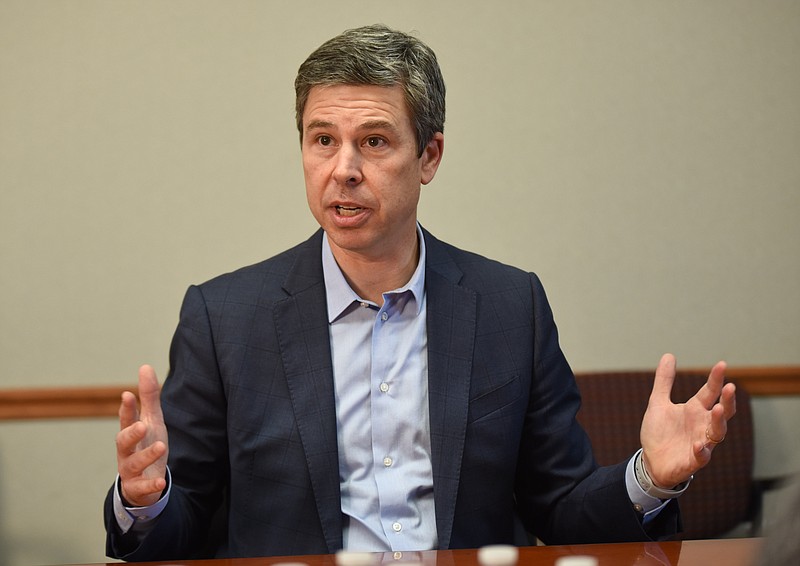You have to honor the big dog, but it can't be your only animal.
Volkswagen has generated more than 10,000 jobs in Chattanooga and helped to transform the city since the German car maker announced 10 years ago this week that it would build its only U.S. assembly plant in Southeast Tennessee.
Chattanooga Andy Berke said today that VW has been a key player in the turn around in Chattanooga since Berke's childhood in the 1960s when he said his hometown was "dying" and "dirty" with pollution from old foundries and steel mills.
"For us, it's pretty simple. When VW sells more of its Atlas and Passat vehicles, Chattanoogans have more jobs," Berke said today in a nationally broadcast interview today with Axios Executive Editor Mike Allen
But while Berke praised VW for its role in helping the local economy, he stressed that the city still needs a diversified economy to avoid being too dependent upon a single industry or economic sector like it was a half century ago when the manufacturing slowdown hit Chattanooga harder than most cities.
"You have to honor the big dog, but it can't be your only animal," Berke said. "We need VW and we need to keep it growing, but you can't put all of your eggs in that basket."
VW has invested more than $2.3 billion in its Chattanooga assembly plant, which has produced nearly 800,000 vehicles over the past decade. Volkswagen is preparing to add production of a 5-seat Atlas SUV and is reportedly considering Chattanooga for future model lines, perhaps including electric vehicle manufacturing.
But even after landing VW's only U.S. assembly plant in 2008, the share of Chattanoogans employed in manufacturing jobs is still only a third of what it was a half century ago.
Berke said Chattanooga has successfully focused on its best assets to rebuild its economy after many of its key industries of the past, including textiles, foundries and nuclear power, declined or moved offshore.
Berke said Chattanooga has tried to capitalize on its strengths, including its river, mountains and outdoor attractions along with its central location to help draw both visitors and relocating workers and businesses.
Chattanooga's municipally owned utility, EPB, is one of 155 local power companies that get their power from the Tennessee Valley Authority. EPB build the world's fastest internet network as a byproduct of its effort to create a smarter electric grid and that has helped to build the fastest telecom connections and rebrand Chattanooga as "Gig City."
"We have the fastest, cheapest and most pervasive internet service in the world," Berke bragged to Axios during his Washington D.C. interview, noting that EPB's fiber optic network offers up to 10 gigabit-per-second connections through all 600 square miles of the utility's service territory. "It skips no one and no neighborhood no matter what you do, where you are or what you look like."
Berke said local governments like the city government he heads tend to work together better with fewer partisan disputes than does Congress and the president because local officials are closer to their constituents and people want their communities to succeed.
"Even across party lines, we find we can get things done in city government and we find people generally want to see their community move forward," he said. "If you don't want the traffic and heavy density of a major urban area, but you want a good mid-sized city - a lot of people grew up in that size community - Chattanooga has a lot to offer. We don't want to be something other than what we are. We want to be a great mid-sized city."
For all its success in cutting unemployment and poverty rates while boosting average household income, however. Berke said Chattanooga still struggles with how to reach those who are being left behind in a changing economy.
"We have record low unemployment (dropping to 2.8 percent in Hamilton County in May), but people don't just need a job," Berke said. "They need a job that pays. A lot of people are finding that they are growing their income and they still can't pay their bills.As we see the pie expanding, we have to figure out how to make sure that more people have their share of that pie."
